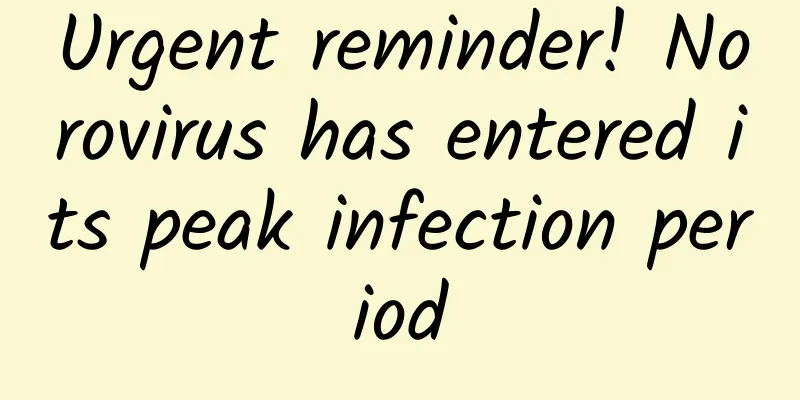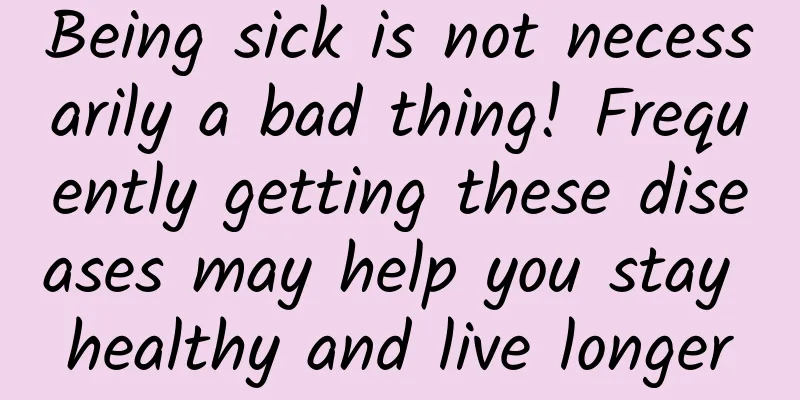Urgent reminder! Norovirus has entered its peak infection period

|
The peak season for norovirus infection is from October to March of the following year. Schools and childcare institutions are places where people gather. The Chinese Center for Disease Control and Prevention reminds that after returning to school after the Mid-Autumn Festival and National Day holidays, it is particularly important to prevent and control the epidemic in key places such as schools. What is Norovirus? Norovirus belongs to the Caliciviridae family and is one of the common pathogens that cause acute gastroenteritis. Norovirus has the characteristics of low infection dose, long detoxification time, and strong resistance to the external environment. It is easy to cause gastroenteritis outbreaks in relatively closed environments such as schools and childcare institutions. Norovirus is an RNA virus that is very easy to mutate. New mutants appear every few years, causing global or regional outbreaks. Image source: Pixabay What are the main symptoms of norovirus gastroenteritis? The incubation period of norovirus infection is 12-72 hours, usually 24-48 hours. Common symptoms include nausea, vomiting, fever, abdominal pain and diarrhea. Some patients also experience headaches, chills and muscle aches. Children mainly experience vomiting, while adults mostly experience diarrhea, with loose or watery stools. How is norovirus spread? Cases and latent carriers are the sources of Norovirus infection. There are many ways of transmission, mainly through ingestion of food or water contaminated by feces or vomit, contact with feces or vomit of patients, inhalation of aerosols produced by vomiting, and indirect contact with objects and environments contaminated by feces or vomit. How is norovirus gastroenteritis treated? Norovirus gastroenteritis is a self-limiting disease, and there is currently no effective antiviral drug. Most patients have mild symptoms after onset and do not require treatment. They can recover after 2-3 days of rest. Oral sugar saline or oral rehydration salts can be taken to replenish the water lost by vomiting and diarrhea. For infants, young children, and the elderly, especially those with underlying diseases, if they have more serious symptoms such as dehydration due to frequent vomiting or diarrhea, they should be treated promptly. How can individuals and families prevent norovirus infection? 01Keep your hands clean Before meals, after defecation, and before processing food, you should wash your hands correctly according to the 6-step hand washing method, using soap and running water for at least 20 seconds. However, it should be noted that alcohol-containing disinfectant wipes and hand-free disinfectants are ineffective against norovirus and cannot replace hand washing. 02Pay attention to food and water hygiene Do not drink raw water, wash vegetables, fruits and melons thoroughly, cook food thoroughly, especially oysters and other shellfish and seafood, which must be cooked thoroughly before eating. 03 Stay at home as much as possible Norovirus infected people should be isolated as much as possible from the time of illness to 3 days after recovery. Mild patients can be isolated at home or in the epidemic site, and severe patients need to be sent to medical institutions for isolation and treatment. During this period, patients should wash their hands frequently, keep their hands clean, try not to have close contact with other healthy family members, eat and sleep separately, and especially do not cook or take care of the elderly and young children. 04Do a good job of environmental cleaning and disinfection Keep the indoor temperature appropriate and open windows for ventilation regularly. Chlorine-containing preparations should be used to disinfect the environment and objects contaminated by the patient's vomit or feces. When cleaning objects contaminated by vomit, plastic gloves and masks should be worn to avoid direct contact with contaminants. The patient's home environment should also be disinfected according to the guidance of medical staff to avoid transmission within the family. 05Maintain a healthy lifestyle Maintain a healthy lifestyle including regular work and rest, proper diet, and moderate exercise to enhance the body's resistance to viruses. The following situations require prompt medical attention Blood in the stool or yellow bile-like fluid in the vomit. Babies under 1 year old cannot eat normally for more than 4 hours. Severe abdominal pain that does not go away. Poor mental response and drowsiness. Dry mouth, thirst, dry lips, infants have no urine or dry diapers for 4 to 6 hours, children have no urine for 6 to 8 hours, no tears when crying, sunken eye sockets, and poor skin elasticity. The high fever persists. Diarrhea or vomiting that lasts for several days. Source: Chongqing Science Writers Association Audit expert: Luo Yang Statement: Except for original content and special notes, some pictures are from the Internet. They are not for commercial purposes and are only used as popular science materials. The copyright belongs to the original authors. If there is any infringement, please contact us to delete them. |
<<: When the brain begins to shrink, these 3 signs usually appear
>>: Get well, patient | How should lung cancer patients recover after surgery?
Recommend
Is it true that you won’t gain weight if you eat during your period?
For many women, the menstrual period can be said ...
What is the cause of placental hematoma?
When the baby is in the mother's belly, it ma...
You should know these facts about periodontitis!
For many people, periodontitis is a disease that ...
Treatment of cervical ulcers
Having bumps on the cervix is a very sensitive ...
Can breast fibroids be cured?
From the perspective of clinical incidence, breas...
What is the yellow substance picked out from between teeth? Why does it smell so bad?
One minute with the doctor, the postures keep cha...
The reason why women feel stinging pain after urinating
In daily life, many women experience stinging pai...
What are sea urchins? How to deal with them
Sea urchins play a very important role in the mar...
Tips for breast enhancement after weaning, these methods will make you firmer!
After a period of breastfeeding, women's brea...
When is a woman's ovulation period?
Many newly married couples want to get pregnant a...
Device Review Science: New Coronavirus Antigen Detection Kit
Source: China Device Evaluation...
What causes excessive vaginal discharge during menopause?
Women have more leucorrhea during menopause, but ...
How to ask for leave when you are pregnant and don't want to go to work
Many mothers collected information when they were...
What happens if you eat popsicles during your period?
It is best to eat some refreshing and nourishing ...
IDC: Apple's shipments in Q4 2023 will reach 80.5 million units, with a market share of 24.7%
According to IDC, the global smartphone shipments...









